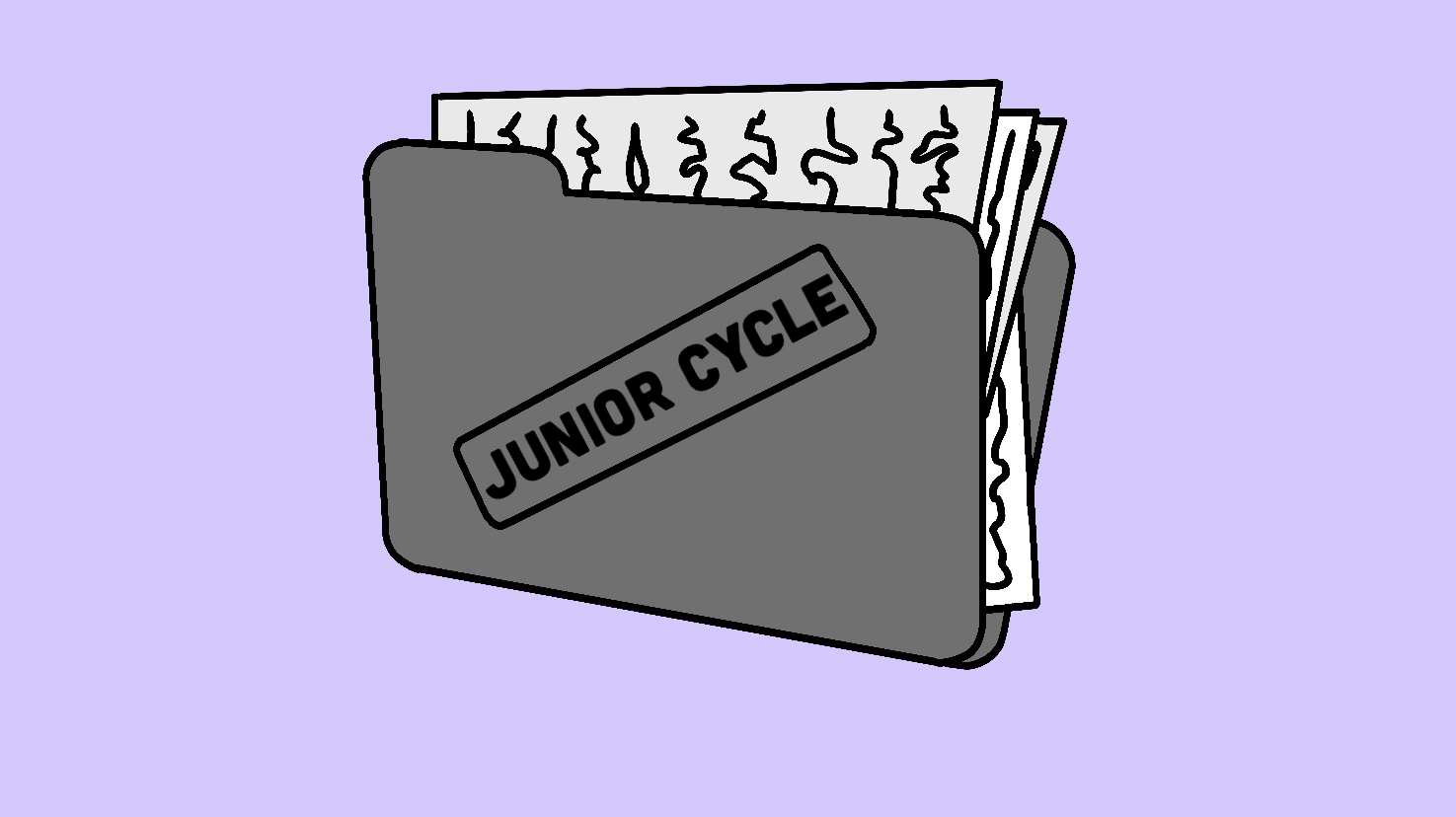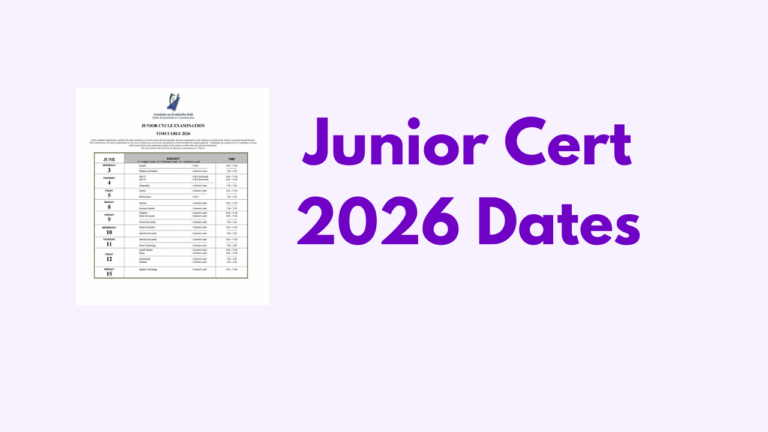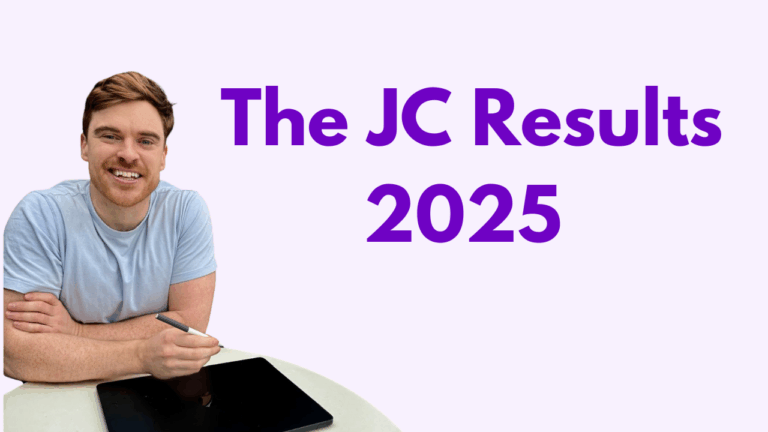WhatsApp Us: +353 87 202 0389
Email: info@btmaths.com

My Guide To The Junior Cycle
The Junior Cycle Profile of Achievement (JCPA) is an award administered by the State Examinations Commission of the Department of Education and Skills in Ireland. It is compulsory for every child to complete the Junior Cycle.
In this article, we’ll talk about everything you need to know about the Junior Cycle, along with some bonus tips to help your child ace the Junior Cycle!
Junior Cycle Framework
Since its launch, the Junior Cycle has been reformed a couple of times to ensure the utmost benefit of the students.
It features revised subjects and short courses, a focus on literacy, numeracy, and key skills, and incorporates new approaches to assessment and reporting. Schools have more freedom to design Junior Cycle programmes that meet the learning needs of all students.
The Junior Cycle is designed to ensure equal opportunity, participation, and outcome for every child. For students with special educational needs, priority learning units (PLUs) are provided. Thus, students with learning difficulties such as ADHD, Dyslexia, Autism, etc., will not be penalised for spelling mistakes in exams like English and Irish.
We also believe that every child has the same right to education. That’s why Breakthrough Maths also provides online maths grinds to children with special needs. For the record, one of our students had Autism, and he achieved 480 points! His story is an inspiration to us!
Junior Cycle Subjects
The Junior Cycle Programme offers an extensive range of subjects, but not all of them are available in every school. The mandatory exam subjects for the Junior Cycle are the same as the old Junior Cert – English, Irish, and Maths – but with History added into the mix too.
Here’s a list of the subjects available for the Junior Cycle, as well as the levels offered for each subject:
| Subject | Levels Offered |
| Applied Technology | Common Level |
| Business Studies | Common Level |
| Classics | Common Level |
| Engineering | Common Level |
| English | Higher and Ordinary Level |
| Gaeilge (T1/T2) | Higher and Ordinary Level |
| Geography | Common Level |
| Graphics | Common Level |
| History | Common Level |
| Home Economics | Common Level |
| Jewish Studies | Common Level |
| Mathematics | Higher and Ordinary Level |
| Modern Foreign Languages (French, German, Italian, Spanish) | Common Level |
| Music | Common Level |
| Religious Education | Common Level |
| Science | Common Level |
| Visual Art | Common Level |
| Wood Technology | Common Level |
What Do The Levels Mean?
The level of the subject a student chooses will significantly impact their grades in their Leaving Cert exams, because a student who studies a subject at Ordinary Level in the Junior Cycle will find it almost impossible to take the subject at a Higher Level in the Leaving Cert.
This limits a student’s points potential. For the Leaving Cert, at a Higher Level, the highest possible grade is H1 (90-100%), and if a student achieves a H1, they will receive 100 CAO points. But when a subject is sat at Ordinary Level, the maximum points attainable is 56.
So, think long and hard about what level you’re going to sit each of your subjects at. Be realistic, and think about the long term!
The Junior Cycle Examinations
The Junior Cycle exams begin around the second week in June. Students on average sit 9- 10 subjects. The exams usually last for two and a half weeks, starting with English, then the other core subjects and gradually ending with the subjects with the least number of candidates.
The duration of the exams varies from 2 to 2:30 hours according to the subject.
The exams take place in the form of written papers, aural exams, practical exams, and marks from coursework assignments. The aural exams are done at the beginning of the written paper. The practical and oral exams take place between February and April, whereas the written exams take place later in June.
JC Assessment & Reporting
The Junior Cycle is assessed through classroom-based assessments (CBAs), short courses and the state examination and reported through the Junior Cycle Profile of Achievement.
Here are some things you should know about CBAs, short courses, assessment tasks, and the JCPA:
The CBA’s
Classroom-Based Assessments (CBA’s) happen during normal class times on regular learning outcomes. They are assessed at a common level. The motive of CBAs is to capture the knowledge and skills that cannot be easily assessed in a typical written examination.
There will be two CBAs for each subject, one in 2nd year and another in 3rd year.
The SLAR’s
Subject Learning and Assessment Review Meetings (SLAR) occur after each completed CBAs. In this meeting, the teachers discuss the students’ work and give them feedback. Each meeting lasts for about two hours. In Junior Cycle, SLAR meetings play an important role in the students’ learning process.
Assessment Task
Assessment tasks are written tasks that evaluate what the students have learned, their skills, and their experience from the second CBA. Assessment Tasks are marked by the State of Examinations Commission (SEC).
Short Courses
Short courses are designed to fulfil the motto of the 24 statements of learning. They require around 100 hours of student engagement. Students can take up to 4 short courses and substitute these for non-mandatory courses.
The list of the short courses provided by the NCCA is as below:
Apart from these short courses, schools will have the flexibility to create their own short courses that fit the framework for Junior Cycle.
The JCPA
The Junior Cycle Profile of Achievement (JCPA) is awarded to students after successfully completing Junior Cycle. It was first introduced in 2017. The school prints out the JCPA for each student.
JCPA records a student’s performance in the CBAs, short courses, the state examination, and other assessments taken over the 3 years of the Junior Cycle. It will also record a student’s achievement in Level 1 Learning Programmes (L1LPs), Level 2 Learning Programmes (L2LPs), where relevant.
Note that from 2022, JCPA will include achievements according to the new changes made to the Junior Cycle.
Junior Cycle Grading System
Here’s the new grading system for Junior Cycle Profile of Achievement (JCPA):
| Percentage Range | Grade |
|---|---|
| 85 or Over | Distinction |
| 70 to 84 | Higher Merit |
| 55 to 69 | Merit |
| 40 to 54 | Achieved |
| 20 to 39 | Partially Achieved |
| Less than 20 | No Grade/ NG |
The new JCPA grading system will apply to all subjects from 2022. These grades only apply to the written exams as CBAs have a different grading system.
The distinction is the highest possible grade in Junior Cycle. And to get a distinction in maths, you can undoubtedly trust Ireland’s #1 Online Maths Grinds Breakthrough Maths!
Transition Year
The Transition Year is a one-year programme that acts as a bridge between Junior Cycle and Leaving Certificate. The Transition Year is optional in most schools. Currently, 75% of Irish schools offer this programme.
Appealing Grades
Students who are not satisfied with their grades may appeal the State Examination Commission’s (SEC) decision. In order to do so, they have to apply through their schools. The appeal fee is €32 per subject, which will be refunded if their grades are upgraded.
Junior Cycle Fees
The examination fee for the Junior Cycle in 2019 was €109.
You can find the information regarding the examination fees of the Junior Cycle here.
Students who are to sit for the Junior Cycle Examination must pay the required examination fees. In early February of the exam year, parents are given a form. The parents have to make the payment through a bank, and the bank must stamp on the form. After that, the form is returned to the school.
However, students whose parents hold a current medical card do not have to pay the fees. In that case, they have to put the medical card details on the form and send it back to the school.
Should I Do HL for the JC?
Higher Level Maths in the Junior Cycle is a challenge. But it will set you up for success in the Leaving Cert, where completing Higher Level Maths is very important as you’ll get 25 extra points on your CAO. Choosing to take Higher Level Maths in the Junior Cycle is a personal decision, though, and if you experience Maths Anxiety or struggle with Maths, there are options for you.
However, don’t choose not to take Higher Level Maths simply because you think you’re bad at Maths or that the subject isn’t for you. Maths is a skill that can be coached, and while some students may find it easier than others initially, being good at Maths is all about confidence.
Bonus: How To Ace The Junior Cycle!
In Ireland, the school year begins on the first week of September and, for the post-primary level, ends in early June. As mentioned earlier, Maths, Irish, and English are usually studied at a higher or ordinary level. So to say, they are the hardest ones to tackle.
Here are some tips and tricks to help you through Junior Certs through ease:
It is important that you start studying from the beginning of the second year of Junior Cycle. But whatever you do, make a plan first. Jot down what you want to study tomorrow and complete these goals.
We encourage a system of 20 minutes of studying followed by a break. If you picked 4 subjects to study, plan a topic and spend 20 minutes on each subject, breaking in between.
You must solve the past exam papers if you want to get a good grade. For the exams in 2022, there’s a good chance of getting similar questions from 2017, 2018, and 2019.
You can try using flashcards and write notes or important information on them. They are very good for practicing or if you’re having a hard time memorising something.
Should you listen to music while studying? Well, that varies from person to person, but music can be pretty distracting. However, if music helps to focus better, you can listen to classical music or a Spotify study music playlist that you’d prefer.
Stay tuned for more study tips! And don’t forget to check out some of our other blogs, like JC Maths Syllabus Simplified!
T.J – CEO of Breakthrough Maths
Need help in Maths? Contact the Breakthrough Maths team here.




